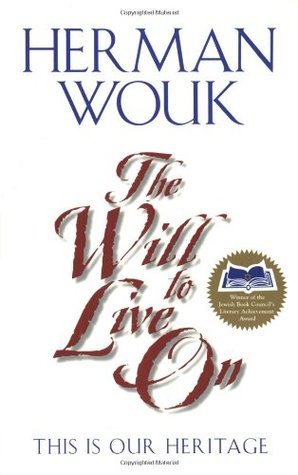
Author

Herman Wouk was a bestselling, Pulitzer Prize-winning Jewish American author with a number of notable novels to his credit, including The Caine Mutiny, The Winds of War, and War and Remembrance. Herman Wouk was born in New York City into a Jewish family that had emigrated from Russia. After a childhood and adolescence in the Bronx and a high school diploma from Townsend Harris High School, he earned a B.A. from Columbia University in 1934, where he was a member of the Pi Lambda Phi fraternity and studied under philosopher Irwin Edman. Soon thereafter, he became a radio dramatist, working in David Freedman's "Joke Factory" and later with Fred Allen for five years and then, in 1941, for the United States government, writing radio spots to sell war bonds. He lived a fairly secular lifestyle in his early 20s before deciding to return to a more traditional Jewish way of life, modeled after that of his grandfather, in his mid-20s. Wouk joined the United States Navy and served in the Pacific Theater, an experience he later characterized as educational; "I learned about machinery, I learned how men behaved under pressure, and I learned about Americans." Wouk served as an officer aboard two destroyer minesweepers (DMS), the USS Zane and USS Southard, becoming executive officer of the latter. He started writing a novel, Aurora Dawn, during off-duty hours aboard ship. Wouk sent a copy of the opening chapters to Irwin Edman who quoted a few pages verbatim to a New York editor. The result was a publisher's contract sent to Wouk's ship, then off the coast of Okinawa. The novel was published in 1947 and became a Book of the Month Club main selection. His second novel, City Boy, proved to be a commercial disappointment at the time of its initial publication in 1948. While writing his next novel, Wouk read each chapter as it was completed to his wife, who remarked at one point that if they didn't like this one, he'd better take up another line of work (a line he would give to the character of the editor Jeannie Fry in his 1962 novel Youngblood Hawke). The novel, The Caine Mutiny (1951), went on to win the Pulitzer Prize. A huge best-seller, drawing from his wartime experiences aboard minesweepers during World War II, The Caine Mutiny was adapted by the author into a Broadway play called The Caine Mutiny Court Martial, and was later made into a film, with Humphrey Bogart portraying Lt. Commander Philip Francis Queeg, captain of the fictional USS Caine. Some Navy personnel complained at the time that Wouk had taken every twitch of every commanding officer in the Navy and put them all into one character, but Captain Queeg has endured as one of the great characters in American fiction. He married Betty Sarah Brown in 1945, with whom he had three sons: Abraham, Nathanial, and Joseph. He became a fulltime writer in 1946 to support his growing family. His first-born son, Abraham Isaac Wouk, died in a tragic accident as a child; Wouk later dedicated War and Remembrance (1978) to him with the Biblical words, "He will destroy death forever." In 1998, Wouk received the Guardian of Zion Award. Herman Wouk died in his sleep in his home in Palm Springs, California, on May 17, 2019, at the age of 103, ten days before his 104th birthday.